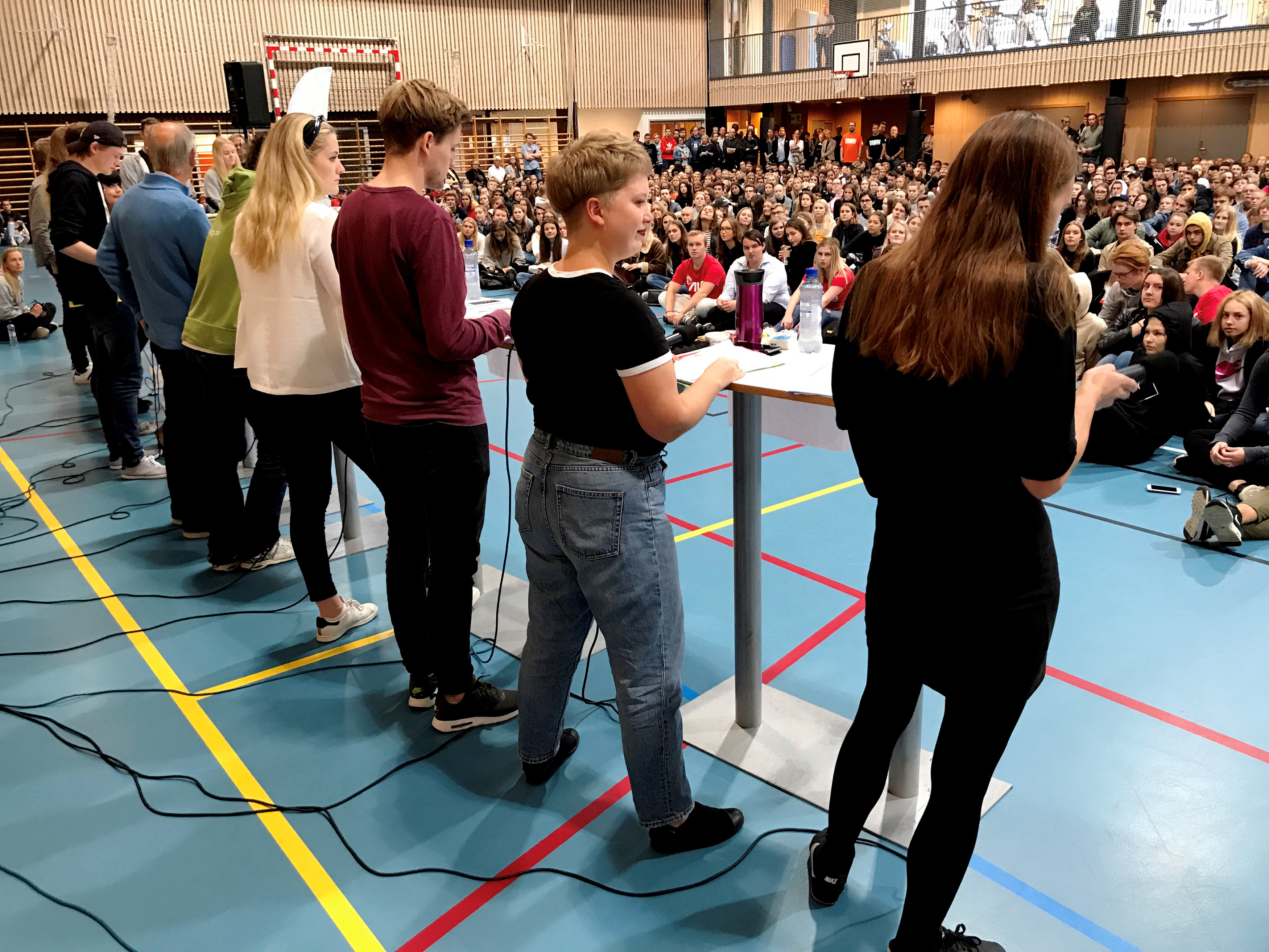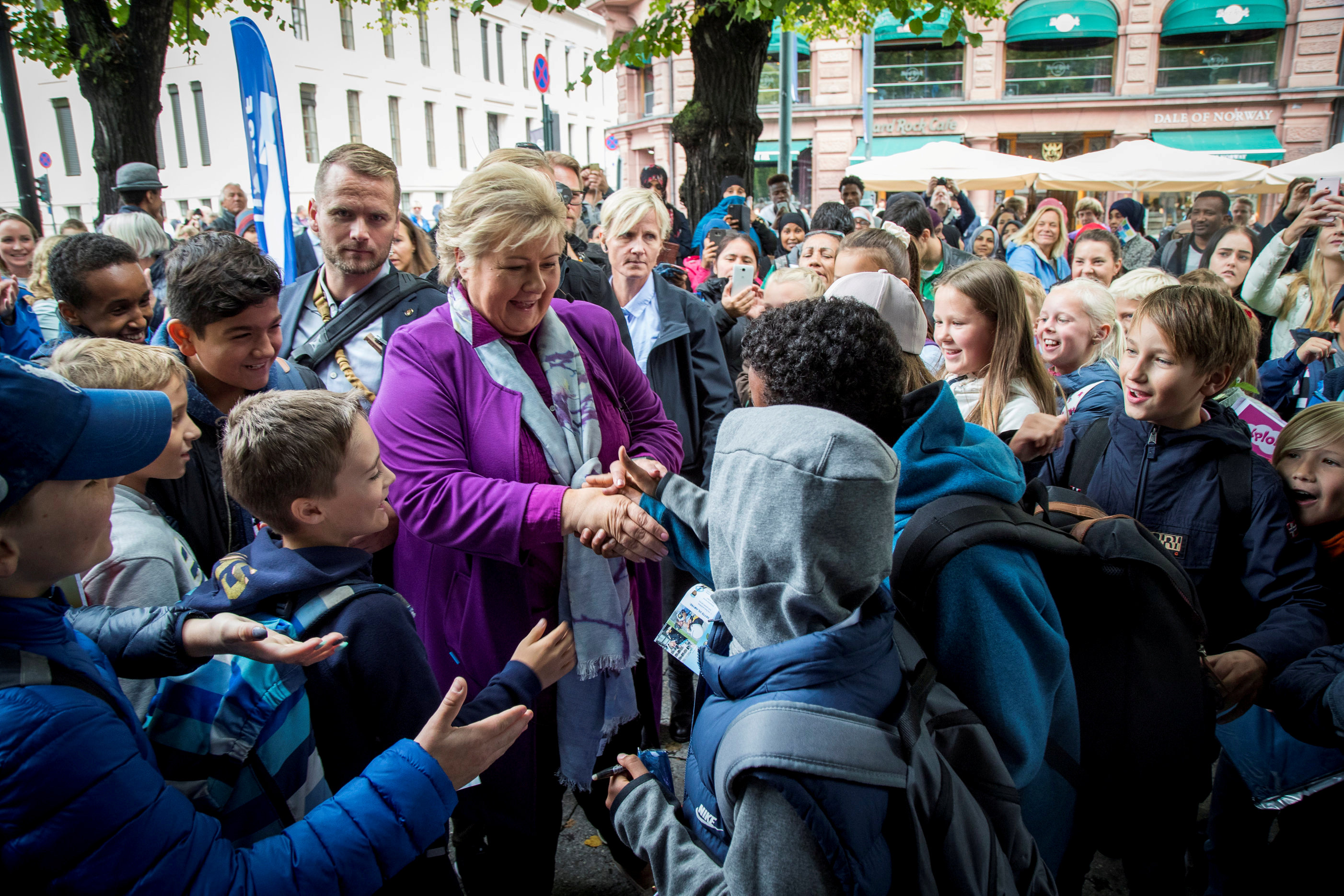Oil cash habit could be hard to kick for Norway’s vote winner

Most politicians will talk tough on fiscal discipline before they get their hands on the world’s largest sovereign wealth fund.
Hilde Bjornland, one of Norway’s most prominent economists, isn’t putting too much faith in talk from the main protagonists in Norway’s election campaign of clamping down on spending from the nation’s vast oil wealth.
“The problem in Norway isn’t that the politicians spend so much in a downturn, but that they don’t similarly tighten in an upturn,” the professor at the Norwegian Business School said in an interview.
That would mean further withdrawals from the $980 billion wealth fund, which was tapped last year for the first time by the sitting Conservative-led government. Withdrawals will be about 70 billion kroner ($9 billion) this year, and with no inflows of new oil cash the fund is under increasing pressure to deliver solid returns. For now though, its investment income covers the outflows and then some.
“It’s the returns that will matter,” Bjornland said. “That means we’ll have to prioritize to a greater degree.”
[Threat to oil becomes real as climate crashes Norway’s election]
The race is neck and neck between incumbent Prime Minister Erna Solberg and the opposition led by Labor’s Jonas Gahr Store. Both blocs are campaign on weaning the economy off its addiction to crude and scaling back on oil cash spending.
Soon after assuming office, in 2013, the Solberg government was hit by a sharp drop in crude prices that sent shock waves through the economy, with more than 50,000 job losses in the oil sector alone. The government responded with tax cuts and massive investments in infrastructure, covered in part by the wealth fund withdrawals.
Spending of oil money will this year equal almost 8 percent of the economy, so cutting down could mean making hard budget choices. The government also earlier this year tightened the parameters limiting oil cash spending to 3 percent of the wealth from 4 percent. But that limit is discretionary.
According to Erik Bruce, a senior economist at Nordea Bank, the two establishment parties act as an anchor for fiscal prudence and will be very careful. “As the economy improves, and with the changes we’ve had in the fiscal spending rule, it means that there is little room for increased oil spending,” he said.

But Labor has seen its backing plunge in recent weeks and is headed for potentially the worst election since 2001, when it received 24.3 percent of votes cast. Many of its voters are fleeing to parties even further to the left, which could mean tough spending demands should a center-Left alliance emerge as the winner on Monday. While Labor has promised tax increases, it looks unlikely it will want to add to the roughly 15 billion kroner it has already proposed.
The Conservatives will look to carry on for another four years with the Progress Party, which has pledged to continue as usual with the record spending and tax cuts.
With only a few days left to campaign, the contenders are now fighting for the undecided voters.
“The election campaign is intense and exciting,” Gahr Store told reporters outside of Parliament on Thursday. “There are about 1 million voters that haven’t made up their mind yet. This is an opportunity for Labor and other parties to reach out to voters, and I have an ambition to show that we will.”
Solberg said she’s buoyed by first erasing Labor lead and now building her own.
“It’s a positive development for a conservative majority, but it’s very tight and it will depend on who manages to mobilize this last weekend,” she said in an interview on Thursday.